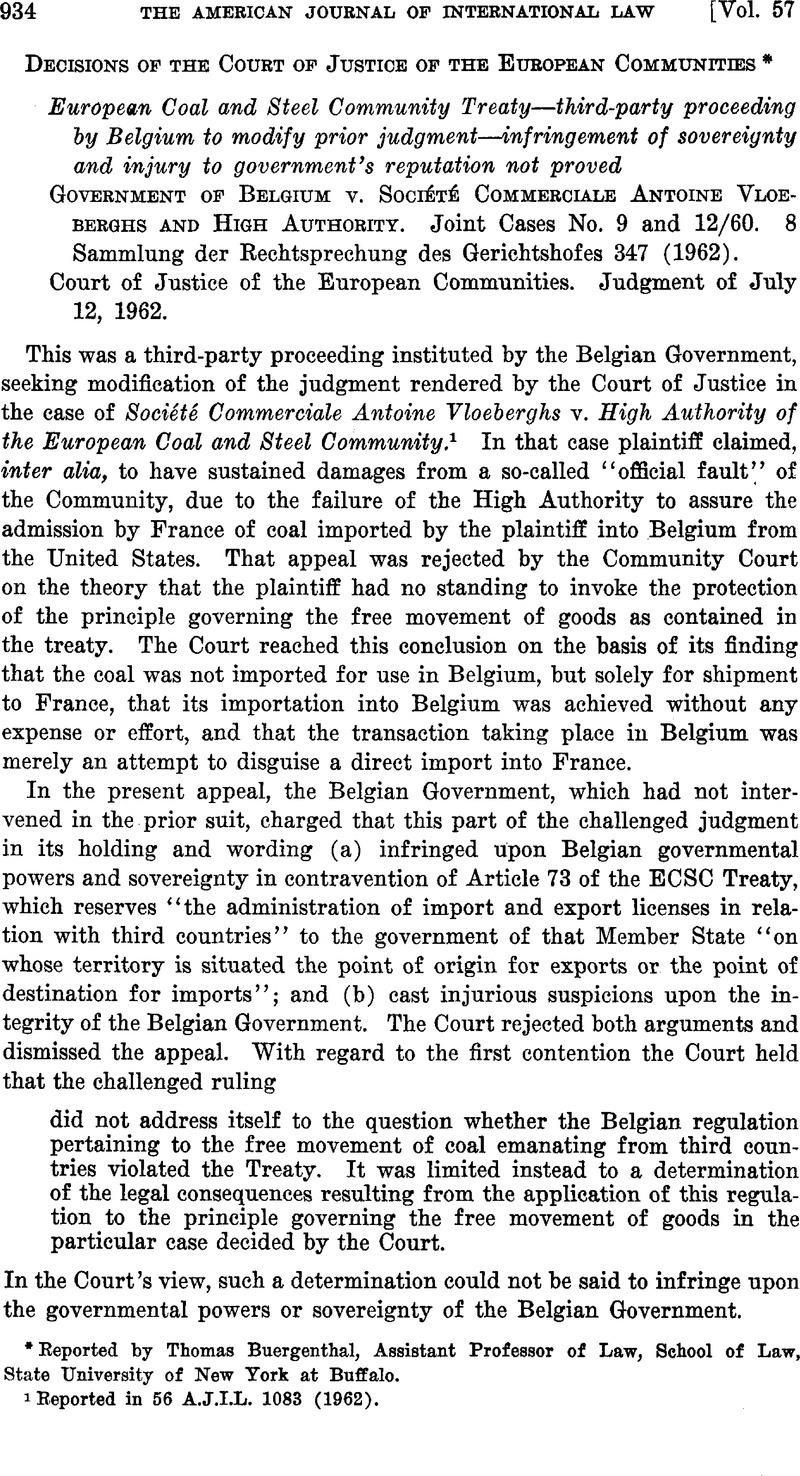No CrossRef data available.
Published online by Cambridge University Press: 28 March 2017

1 Reported in 56 A.J.I.L. 1083 (1962).
1 Article 70 of the ECSC Treaty, reprinted in 46 A.J.I.L. Supp. 107 at 139 (1952),provides:
“It is recognized that the establishment of the common market requires the application of such transport rates for coal and steel as will make possible comparable price conditions to consumers in comparable positions.”
For traffic among the member States, discriminations in transport rates and conditions of any kind, which are based on the country of origin or of destination of the products in question are especially forbidden. The suppression of these discriminations involves in particular the obligation to apply to the transport of coal and steel, coming from or going to another country of the Community, the rates, prices and tariff provisions of all types applicable to internal transport of the same products over the same route.
“The rates, prices, and tariff provisions of all sorts applied to the transport of coal and steel within each member State, and among the member States shall be published or brought to the knowledge of the High Authority.”
The application of special domestic tariff measures in the interest of one or several coal- or steel-producing enterprises shall be subject to the prior agreement of the High Authority, which shall ensure that such measures are in accordance with the principles of this Treaty; it may give a temporary or conditional agreement.
“Subject to the provisions of this article, as well as to the other provisions of this Treaty, commercial policy for transport, in particular the fixing and modification of rates and conditions of transport of any type as well as the arrangement of transport prices required to assure the financial equilibrium of the transport enterprises themselves, remains subject to the legislative or administrative provisions of each of the member States; the same is true for the measures of co-ordination or competition among different types of transport or among different routes.”
2 ECSC Treaty, Art. 14(3), provides that “recommendations shall be binding with respect to the objectives which they specify but shall leave to those to whom they are directed the choice of appropriate means for attaining these objectives.”